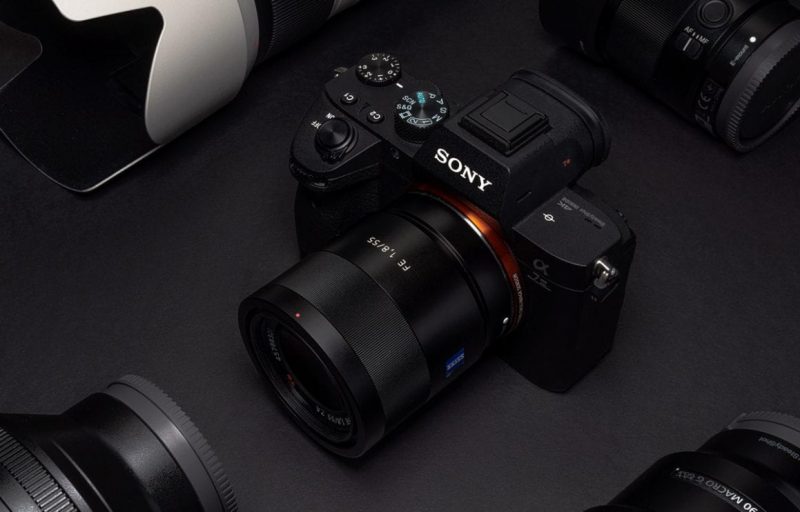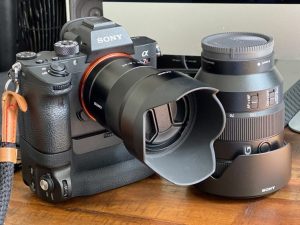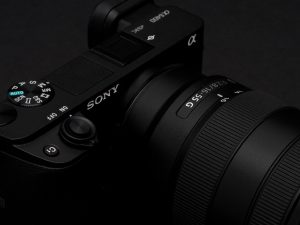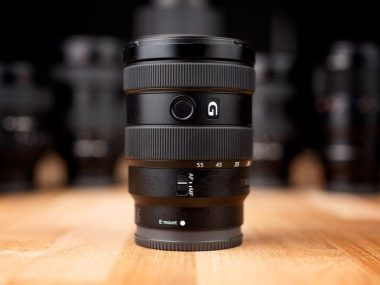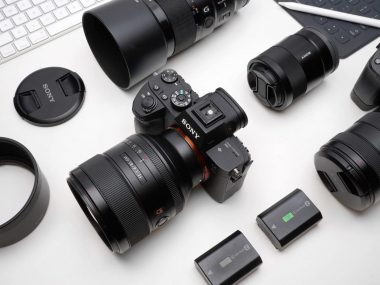When you don’t know much about cameras and technical terms, how do you buy your first professional portrait photography camera?
Buying Your First Sony Camera
I’ve learned that cameras are like any other tool. The better you learn the tool, the better you can be at your craft. Yes, there are some cameras that offer different features that can help you gain an edge, but your creativity and dedication to your craft will ultimately be the determining factor. Sony offers great beginner and advanced portrait photography cameras but there are a few things you need to know before you make that investment.
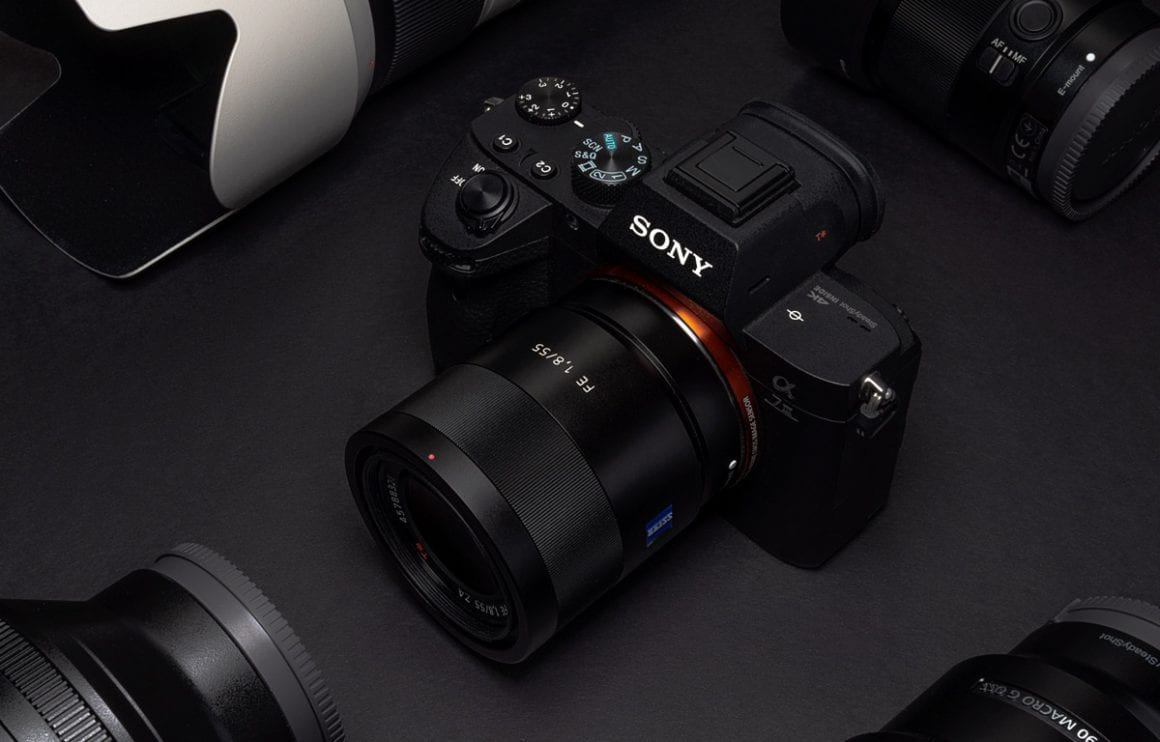
Let’s review the features and specs you might need as a portrait photographer and see which camera is right for you.
Buying Your First Sony Portrait Camera
Before you jump into your research on buying a camera, realize there are many camera brands and many types of cameras.
For full disclosure, I’m a Sony shooter, but I have used Canon and Fuji before for camera learning and testing.
They also have some great options so don’t think these are the only ones.
The majority of my experience is with the Sony e-mount mirrorless camera system.
With that said, I’ll be concentrating on Sony cameras for this article and some of the features that make them a great fit for portrait photography.
What makes a camera a “professional portrait camera”
Before we jump in, I think there needs to be some clarity around what is considered a professional portrait camera.
I believe for beginners there is a perceived value in high-end expensive cameras.
That for some reason these will make you a better photographer.
Equipment doesn’t make you a professional. It can help deliver better quality in your final product, but ultimately the creativity and professionalism must come from you.
Just keep that in mind as I know many “Professional” photographers who use a combination of expensive and budget camera gear for client work.
Cameras for your consideration
Before I tell you what to look for, I’m going to give you a few options in crop sensor and full-frame cameras.
I’ll explain the difference between the two a little further down the article and why the prices are so different.
The prices vary widely so make sure to do your research and look into each camera more for all details and specs.
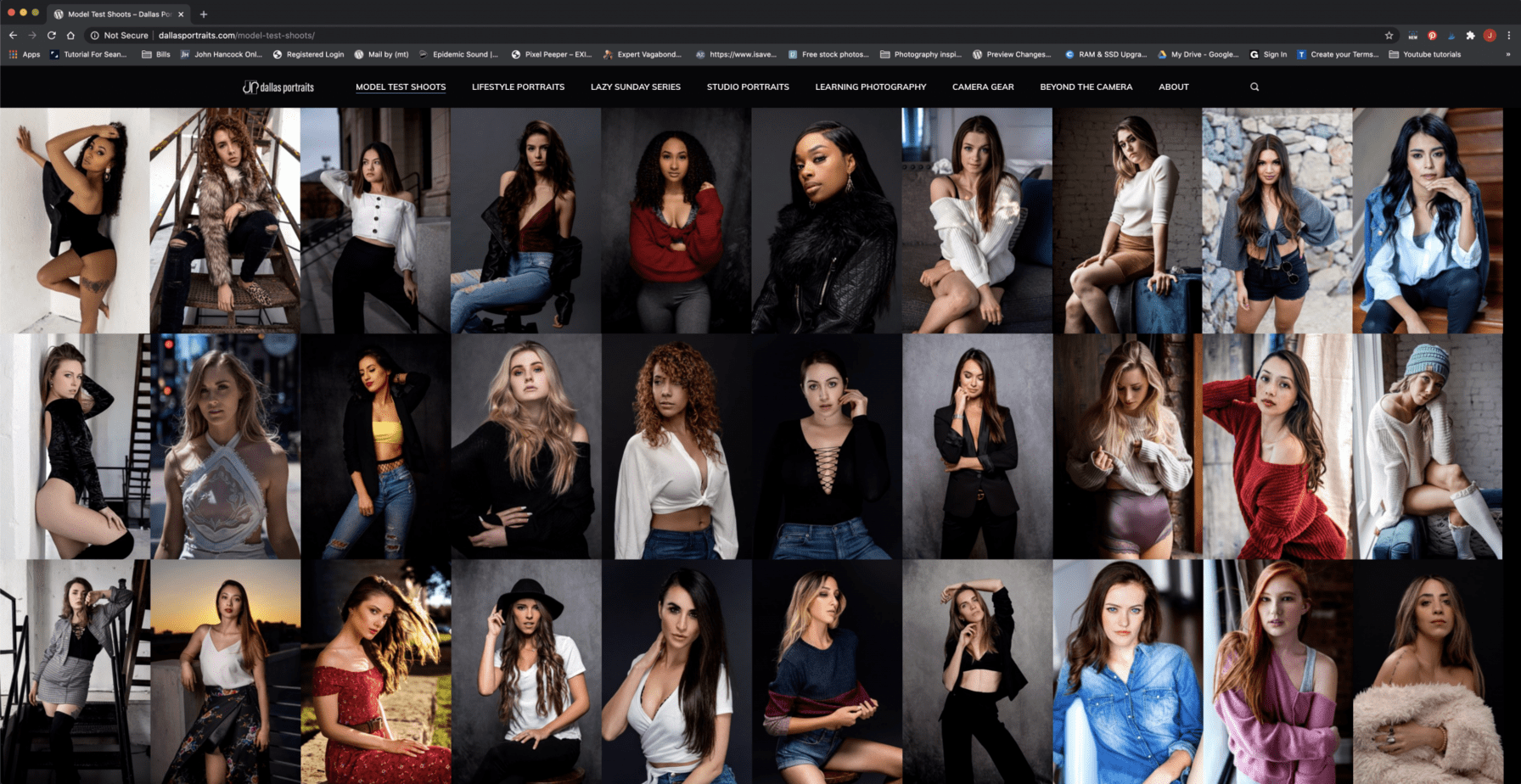
I’ll also explain what is currently in my camera bag and how I built my portrait portfolio at www.dallasportraits.com
$500 and below – Camera For Beginners
Sony a6000 Mirrorless Camera (ASPC)
- Great Starter Camera
- Fast Focusing
- 16-55mm kit lens included
Even though it’s a few years old, the Sony a6000 is a great option for beginners with a limited budget. You can also find these cameras in really good used condition in order to save even more money.
It does have limited functionality compared to the newer Sony a6400 or Sony a6600 but I still think it’s a good little camera for starters.
If you buy a camera body only, you should consider purchasing the Sigma 30mm f1.4 lens or the Sigma 56mm f1.4 lens as your first lens.
Benefits Including:
- Lightweight and easy to carry in your pocket or bag
- 24mp sensors for great quality portraits
- Easy to use and customize
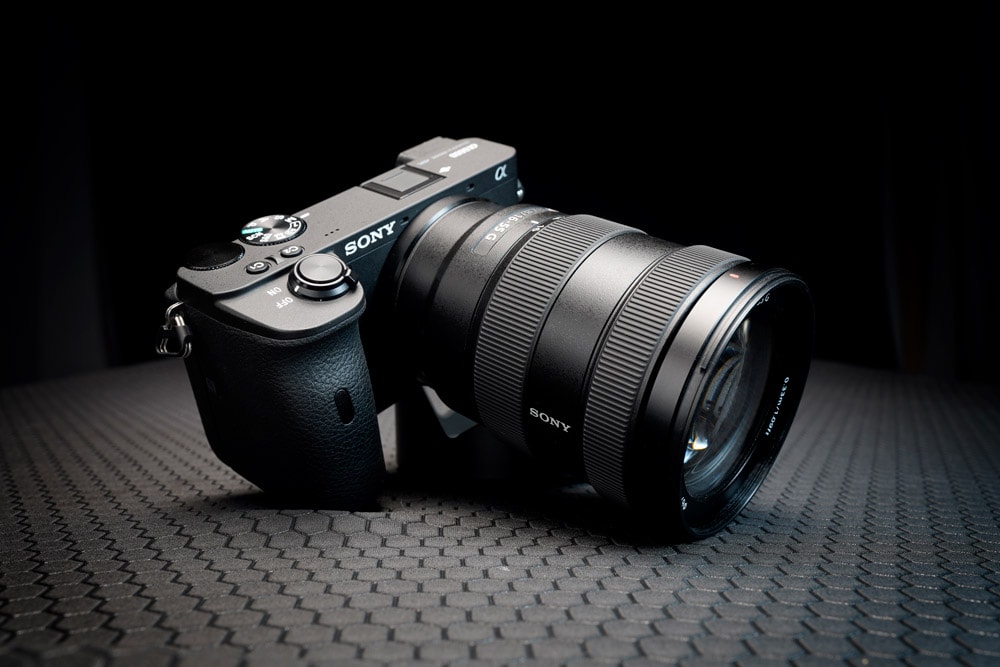
$500-$1500 – APSC Cameras
Sony a6100 Mirrorless Camera (ASPC)
- Continuous Eye Auto-focus
- Good subject tracking
- 16-55mm kit lens included
The Sony a6100 and Sony a6400 are the next step up before going into full-frame cameras. Both have the newest eye auto-focus technology from Sony.
The a6400 has added features mainly on the video side, but the a6100 is a perfect alternative for the price.
I didn’t add the Sony a6600 to this list because I feel the a6400 is a better value. Yes, the a6600 does have IBIS, but I feel this is not necessary for portrait photographers.
Sony a6400 Mirrorless Camera (ASPC)
- Continuous Eye Auto-focus
- 24mp sensor
- 18-135 mm kit lens included
If I was just starting out in portrait photography and I only had a limited budget, I would save and get the Sony a6100 with kit lens.
Then, save a little more and get the sigma 30mm f1.4 or the Sigma 56mm f1.4 lenses for portraits.
Benefits Including:
- Continuous eye auto-focus is top-notch
- Fast-focusing for moving subjects
- Lighter than full-frame cameras
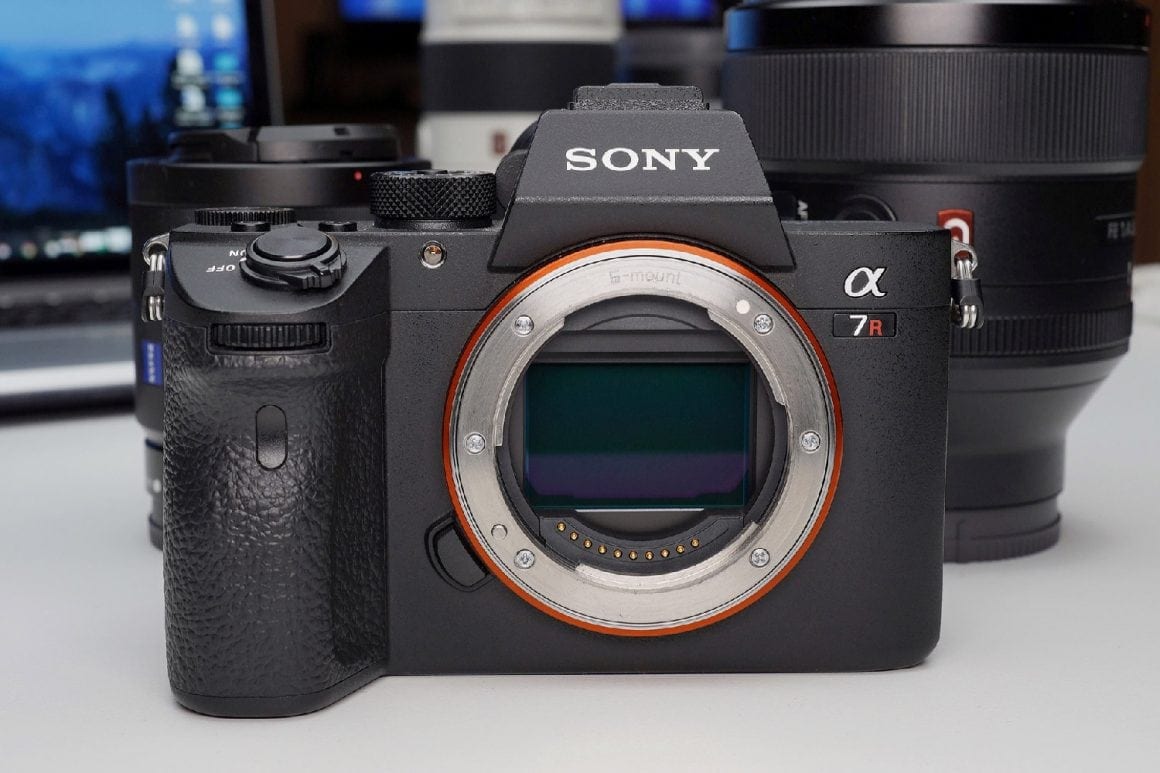
$1500 and above – Full Frame Cameras
Sony a7iii Mirrorless Camera (full-frame)
- Continuous Eye Auto-focus
- 24mp full-frame sensor
- 28-70mm kit lens included
- Price – $1998.00
Jumping into full-frame cameras, let’s start with the 24mp Sony a7iii mirrorless camera. One of the top-performing full-frame mirrorless cameras around.
It can help you jump into the full-frame camera market and is the least costly of the other options full-frame options.
You can also find this camera body used and this will save you even more. Check around and find the best pricing you can before you make your purchase.
Sony a7riii Mirrorless Camera (full-frame)
- Continuous Eye Auto-focus
- 42mp full-frame sensor
- Pixel Shift for large shots
- Price – $2498.00
The Sony a7riii is a full-frame 42mp beast. It is geared toward studio photographers or landscape photographers who need large resolution files.
Like the Sony a7iii, it features fast auto focusing and eye tracking in continuous mode.
Sony a9Mirrorless Camera (full-frame)
- Continuous Eye Auto-focus
- 24mp sensor
- Sports oriented camera
- No blackout
- 693 Phase-detection points
- Price – $3498.00
The Sony a9 is the most expensive but also the most geared towards professional photographers.
It features a 24mp sensor but is jam-packed with other features that make this a great alternative to traditional DSLR cameras.
Benefits Including:
- High-quality full-frame sensor
- Better for low-light portraits over APSC sensors
- Easy to use and customize
3 easy steps to buying your next professional portrait photography camera
Let’s break down the buying process into 3 easy steps. Keep in mind all cameras have advantages and disadvantages.
There is no right or wrong answer. I would look into the cameras with kit lenses if you do not have an extra budget for lenses. Just keep your options open and I know you will make a great choice.
Step 1: Decide on your budget
Cheap isn’t always good and good isn’t always cheap as the old saying goes. Take the time and put a small budget together.
Remember that a camera is just the start of your purchases. You will also be needing extra gear like a camera bag, battery chargers, filters, and maybe even a flash.
Don’t worry if you don’t have a large budget to start with. You can always start with a camera and kit lens, then upgrade as you either save more or start making money from your photography.
Ideally, I would recommend starting with a budget of around $500 – $750 if you can as a minimum.
Step 2: Decide on a camera that interests you
Honestly, this was the most stressful part for me. Finally hitting the buy button and making a decision.
Find a camera that will fit your budget but also allow you to grow. If your budget only allows you to get a starter camera then I recommend getting it.
Use it for the next year as you learn more about the technical aspects of shooting.
Photography can be an expensive hobby and profession so think about your long-term goals before getting started.
Remember lenses and other accessories will start adding to your budget once you decide on a camera system.
Step 3: Don’t buy anything yet. Rent it first
Now that you’ve decided on a camera that might work for you, next is the step I always tell beginners. RENT IT FIRST.
There are local camera shops that you can rent gear from. They will even have recommendations for beginners. If you don’t have one, then I would check out lensrentals.com.
It is a website dedicated to renting gear like cameras and lenses. Find the camera you’re interested in and rent it for a weekend.
Find a lens as well so you can get an idea of how the combo will work together.
If you don’t like it the first time, try something else. There are many camera brands that have beginner cameras for you to try.
Renting is a great option for beginners and advanced creators. It allows you to try new gear and see if it is worth the investment.
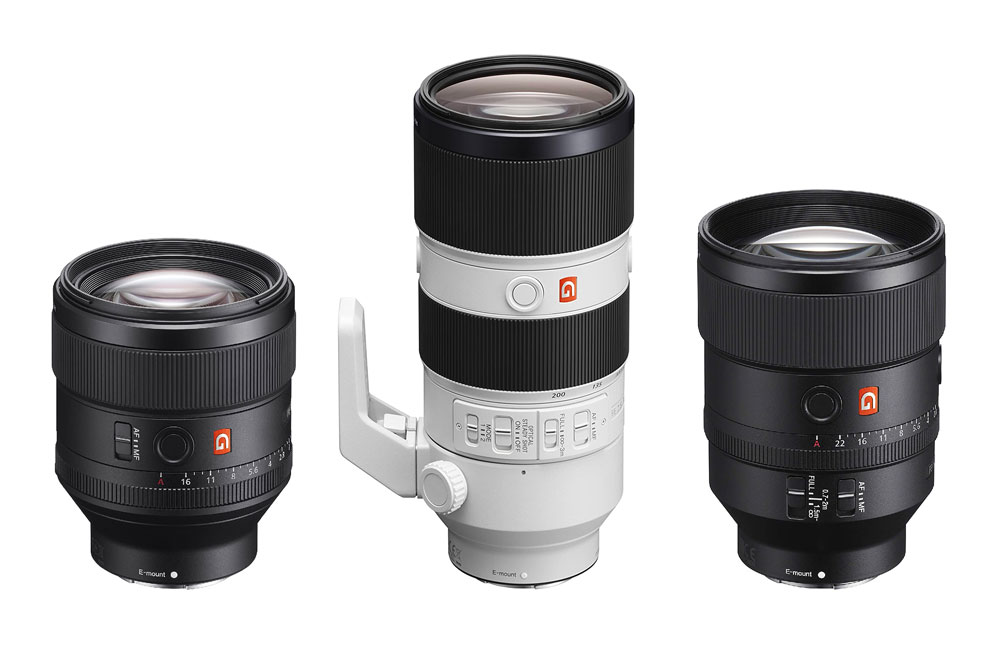
The great debate: spend more money on a camera body or better lenses
Deciding how to spend your money is always a hard task. Especially if you are already on a tight budget. If I had to do it all over again, I would still do the same thing.
I purchased the Sony a7 with the kit lens when I got started. It was on sale from Best Buy and the camera was already 2 years old at the time.
I learned all I could with the kit lens and then saved money to buy my first lens. That was the Sony 55mm f1.8.
If you’re having a hard time deciding, I would say get a decent body and invest in better lenses.
You might just find that you keep the same lens for years but upgrade your camera body more often.
Lenses can be a longer-term investment for you so get really good glass for your photos.
Other photographers may have different answers, but I am pretty confident in my investments with lenses over crazy expensive cameras.
I purchased my current Sony a7riii camera used and saved money for lenses.
Full-frame or crop-sensor cameras: Which is better
This is the next great debate for photographers. Do you spend the money on full-frame cameras or are APSC crop sensor cameras enough?
The answer actually depends on what you are using the camera for.
If you are strictly a photographer and are looking to do client work and maybe even events, I might lean more towards full-frame cameras.
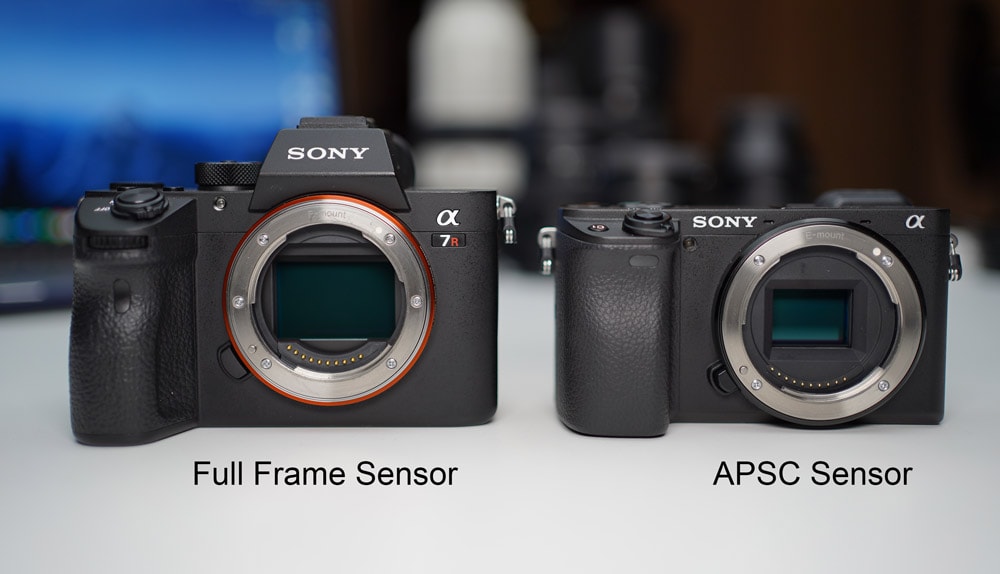
If you are a hobby photographer and most of your work is going to be posted online to social media or other websites, you might find that crop sensor cameras will be just fine.
This will save you a lot of money upfront.
I’ve seen many Youtube videos comparing the quality of crop sensor cameras vs full-frame.
Yes, there is a big difference between the Sony a7riii and the Sony a6000. There is no argument there.
Now, when it comes to the Sony a6400 vs the Sony a7iii, you might be surprised when you see photos side by side.
You may be able to spot the difference, but not when you’re scrolling thru Instagram or Facebook.
If your budget allows and your goals are long term go with a full-frame. If you’re not sure about a longer-term commitment to photography and content creation, then stick with APSC. That’s just how I see it.
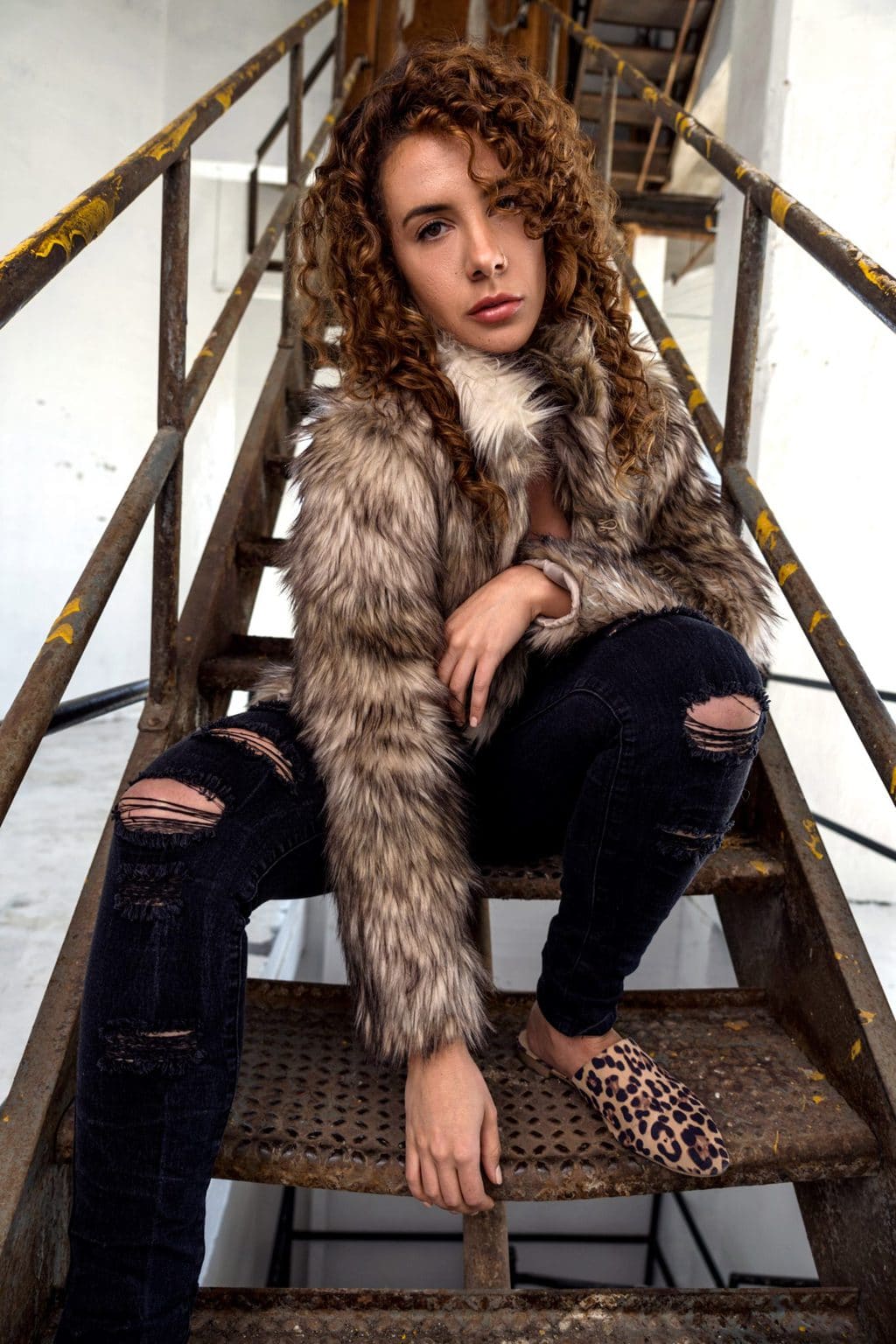
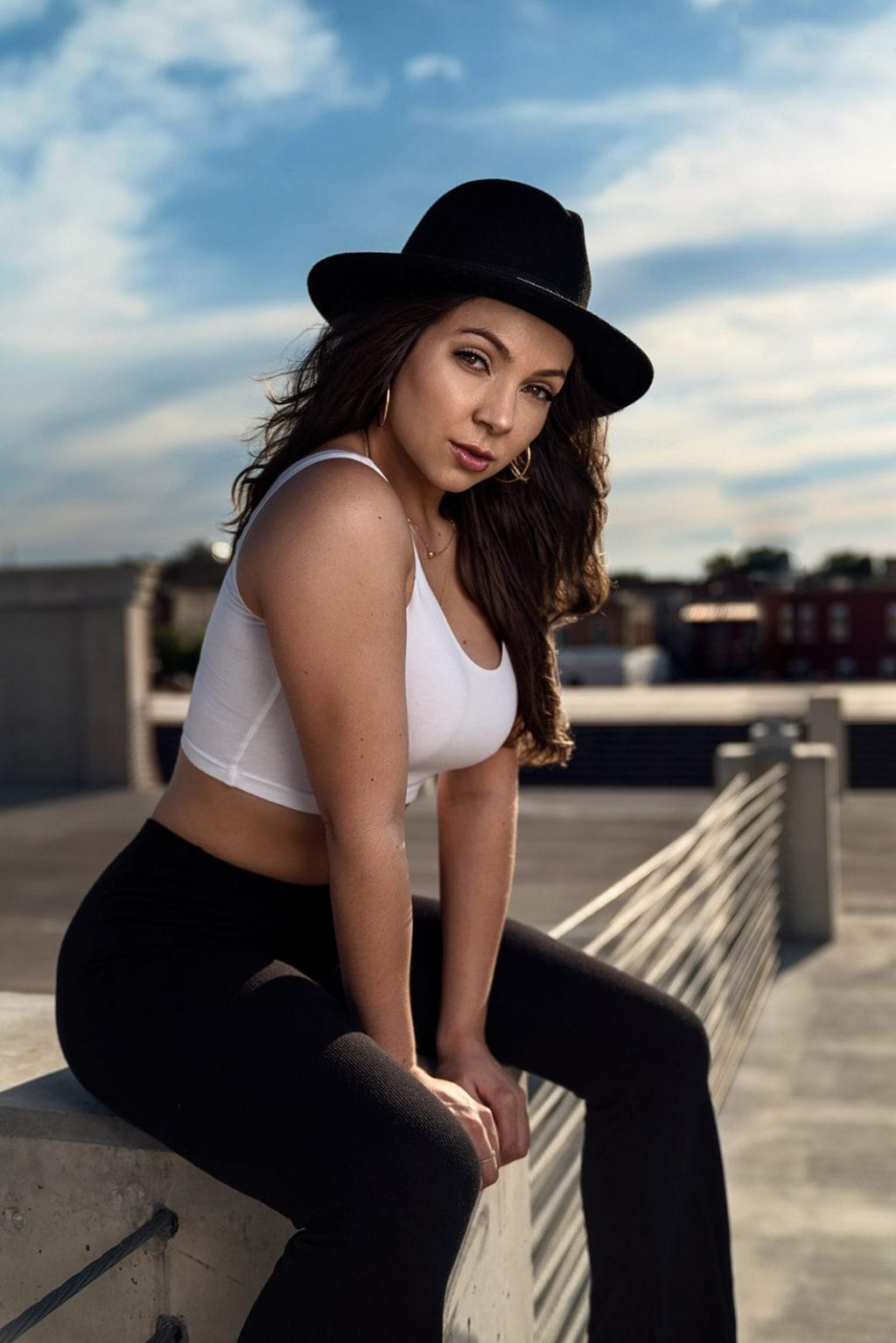
Why Sony Cameras for portraits?
Let me make this loud and clear for the people who are going to ultimately troll me for recommending Sony.
“All Camera Brands Have Some Great Cameras!”
I’m not just saying this. I truly believe it. I’m not a fan-boy who only sticks with one brand. Except for when it comes to shoes. I’m still a K-swiss believer. All white classics.
Sony makes great cameras. Do they have their own unique issues? Yes. Do all camera brands have issues.
Yes. But I have been using Sony for the last 4+ years thru weddings, events, portraits, model test shoots, and more and I like the cameras and gear.
This doesn’t mean I won’t switch in the future. It just means I am comfortable recommending it.
I always recommend gear that I have personally used or have experience with. I also recommend checking out gear that friends and professional colleagues in the industry use.
Full disclosure – I’m NOT paid by Sony. I buy ALL my own gear. Period.
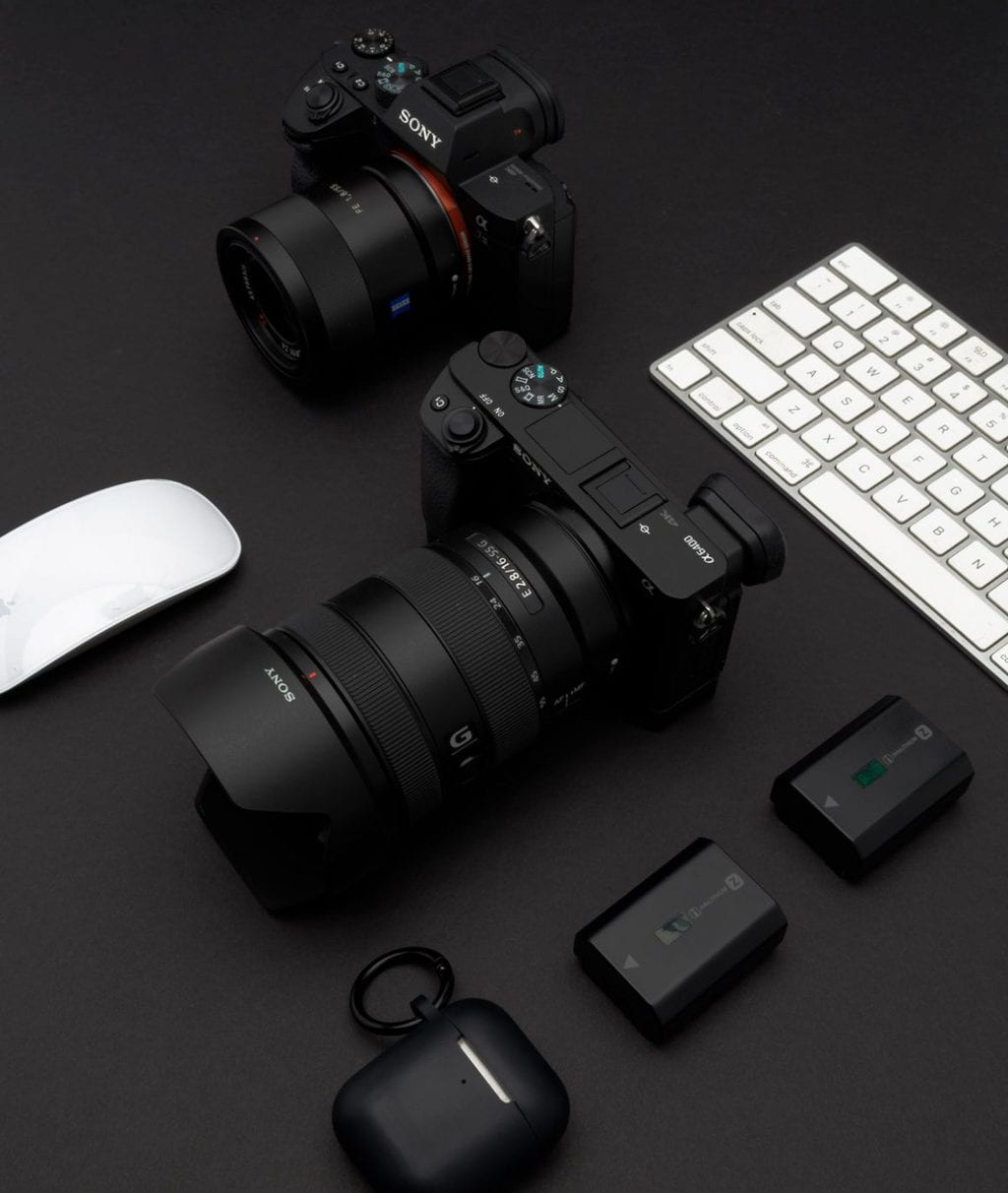
What do I use – Sony a7riii & Sony a6400 Mirrorless Cameras
My current camera bag is pretty small for my model test shoots.
I have my Sony a7riii mirrorless camera body usually paired with my Sony Zeiss 55mm f1.8 lens or my Sony 24-70mm f2.8 lens. This is my main camera for all my portrait shoots.
I also carry my Sony a6400 paired with the Sony 16-55 f2.8 lens for backup and behind-the-scenes photos.
It makes a great addition to my kit, and also allows me to take video footage of my shoots.
Bonus Section: Portrait photography lenses I recommend
If you’re interested in making an investment in some portrait lenses here are a few I recommend you check out.
Remember that full-frame lenses can be used on APSC bodies. APSC lenses will have a large dark vignette on full-frame bodies. Just something to keep in mind.
Full frame lenses you need to check out
- Sony Zeiss 55mm f1.8 FE Lens
- Sony 85mm f1.4 G Master Lens
- Sony 100mm f2.8 STF Lens
- Sony 135mm f1.8 G Master Lens
- Sony 24-70mm F2.8 G Master Lens
- Sony 70-200mm f2.8 G Master Lens
- Tamron 28-75 f2.8 Sony e-mount Lens
Crop Sensor Lenses you need to check out
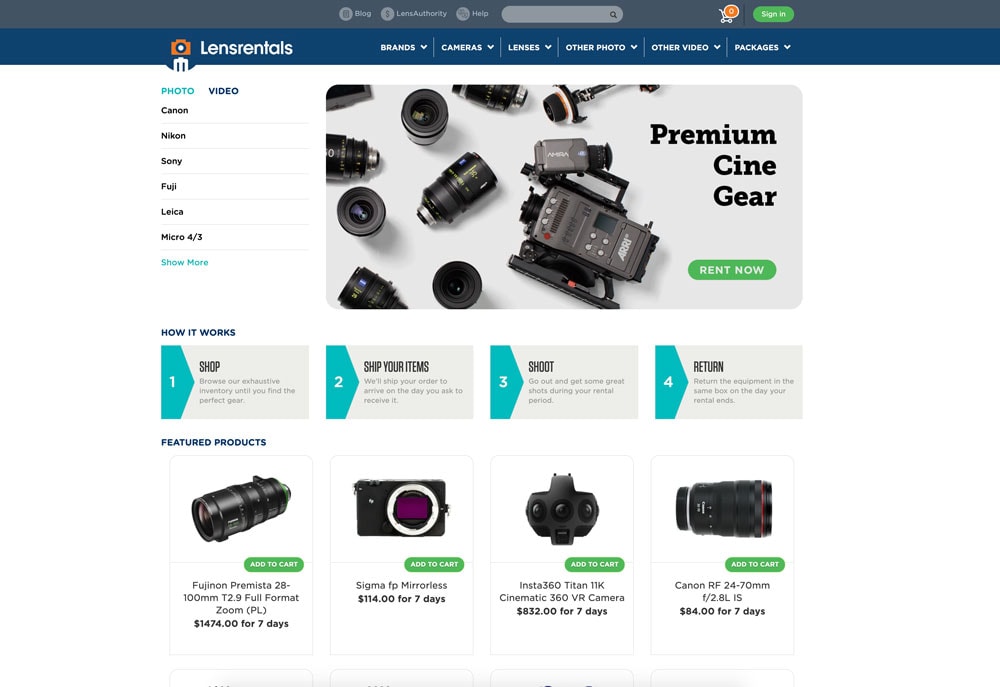
Rent before you buy
I’m reiterating this section one more time for all my beginners. Rent gear first before you make a purchase. This will save you from the headaches of purchasing lenses and finding out you don’t like them.
Make sure to check out my detailed article on renting cameras and gear online.
Final Thoughts Sony Cameras
Being called a professional does not depend on your gear. When looking at purchasing your first professional portrait photography camera, there are many topics to consider.
I hope this article helps you start your research and gives you some ideas or a good starting point. Photography is a fun and creative outlet that I recommend people try.
It’s great for networking and meeting new people and giving you a chance to create in your free time. Best of luck and happy shooting.

